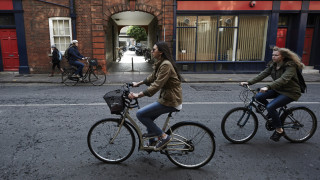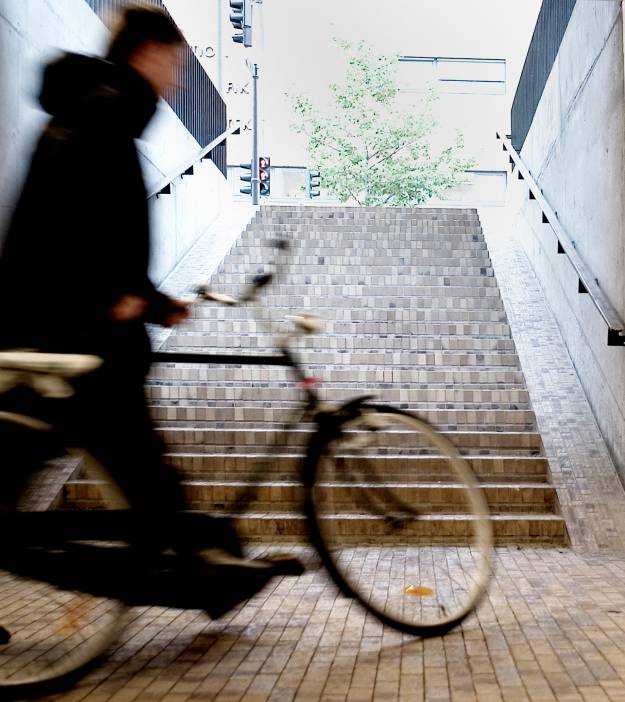As the debate around cycle safety, and in particular helmet use, continues to rage, British Cycling policy advisor, Chris Boardman, writes about the danger of introducing compulsory helmet laws.
In the late 1980s, as a response to her child being struck by a car from behind whilst riding to school, Rebecca Oaten started a campaign to make helmets compulsory for all cyclists in New Zealand. In 1994 she got her wish and it became illegal to ride a bicycle anywhere in the country, without protective headgear.
When viewed in isolation, this seems a logical, even a laudable conclusion, to a terrible tragedy culminating in life saving law change. But if we respond to these incidents in isolation we risk killing more people than we save.
Compared to our European neighbours, UK commuter cyclists feel the need to wear what amounts to body armour in attempt to stay safe. Yet despite their efforts we have some of the highest cycling KSI rates (Killed or Seriously Injured) in Europe and they are increasing. That in itself should tell us something.
All over the world, countries with the highest use of safety gear are the most dangerous for cyclists. Wherever helmet use has been made compulsory, there has been no corresponding drop in head injury unless there is also a drop in cycling rates.
About 110 people are killed each year while cycling on our roads, almost all of these resulting from a collision with a motor vehicle, where the protection offered by a cycling helmet is negligible.
At this point, we usually hear a cry of ‘If it saves one life it’s worth it’. Well, evidence tells us that where helmets have been made mandatory, cycling use drops significantly (30%-40% in Perth, Western Australia). Well, at least if they’re no longer riding, they’re not dying. Enter unintended consequences.
A recent study by the University of Glasgow showed that people who regularly commute by bike almost halve their chances of dying from heart disease and cancer compared to people who drive. In fact their chances of dying prematurely by any cause, drops by 41%. Let those numbers sink in.
In the UK 1 in 6 deaths - nearly 90,000 per year - is as a result of physical inactivity related disease including diabetes, heart disease and cancer. Clearly, any measure proven beyond doubt to reduce peoples likelihood to travel by bike, will almost certainly kill more people than it saves.
So what about Mrs Oaten and her campaign? Imagine if her understandable anger over her son’s terrible accident had been directed not at protecting people in the event of a crash, but at the cause of the incident, the person, who rammed her son from behind as he rode to school? What if her campaign had been to have speeds reduced or areas around schools made car-free? Measures to make streets safe for children to do normal things in normal clothes? Imagine how many lives she would have saved then.
That is what happened in the 1970s in the Netherlands and now, more than 50% of kids ride to school in safety every day. Imagine the reduction in congestion if 50% of children in the UK were not driven to school! It’s also no coincidence that Dutch obesity levels are less than half that of the UK.
So if you want to wear a helmet, go ahead, whatever makes you feel safer but I won’t be letting the debate get sidetracked from the things that evidence shows really keep people safe and saves the most lives.
To the government, I say shame on you that this even has to be discussed (again) and shame on you that we even have to campaign, so we and our children can travel safely in a way that benefits everyone, on the roads we all pay for.













